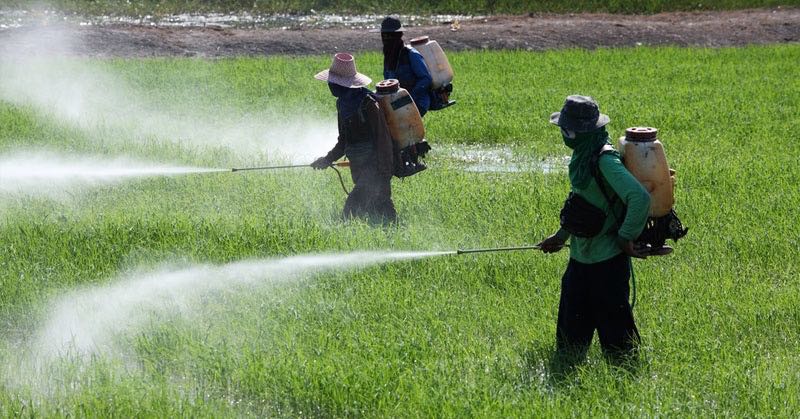Monsanto’s DDT Pesticide Could Raise Breast Cancer Risk In Next Generation
Last updated on
Most people are aware that Monsanto is behind the cancer-causing chemical glyphosate, proud makers of the herbicide Roundup which contains the active ingredient. However, they’re also the makers of dichloro-diphenyl-trichloroethane (DDT), which has been banned in the United States since 1972 after it became clear that it was linked to birth defects, diminished fertility and miscarriages.
While its ban is certainly a good thing, the appearance of health problems caused by its use are far from over; its long-term effects are rearing its ugly head in the wake of a recently published study which points to a correlation between mothers exposed to DDT decades ago and incidences of breast cancer in their adult daughters in more recent times.
The statistics are eye-opening, to say the least. When analyzing the mothers’ blood, the researchers discovered that mothers with the highest levels of DDT exposure had daughters who were 3.7 times more likely to have been diagnosed with breast cancer than women with lower exposures.
Furthermore, mothers who experienced higher exposure levels were more likely to give birth to daughters who went on to have more advanced kinds of breast cancer. Moreover, this finding still held true even when accounting for the mothers’ own breast cancer history, further emphasizing that the detrimental health problems were caused solely by DDT.
DDT-Cancer Link Clear In Latest Study
Hopefully, such findings will encourage the Environmental Protection Agency to reconsider their classification of DDT as a “probable” carcinogen. Although it’s banned in the United States, the EPA remains hesitant when it comes to the DDT-cancer connection.
They mention that it may cause liver damage and cause temporary damage to the nervous system but have yet to make any mention of cancer. It should most certainly be deemed a known human carcinogen, without hesitation.
The details of the 54-year study, which have been published in the Journal of Clinical Endocrinology & Metabolism, was authored in part by Barbara A. Cohn. Cohn, who is also the director of Child Health and Development Studies at the Public Health Institute in Berkeley, California, stresses the importance behind its findings.
The study, she said, is “the first to provide direct evidence that chemical exposures for pregnant women may have lifelong consequences for their daughters’ breast cancer risk.”
DDT A “Predictor Of Breast Cancer”
According to the study’s abstract, researchers set out to determine whether “In-utero exposure to DDT is associated with an increased risk of breast cancer.” The decades-long study assessed 9,300 daughters born to women who were exposed to DDT. Blood tests supported their hypothesis; according to the study, “Findings support classification of DDT as an endocrine disruptor, a predictor of breast cancer, and a marker of high risk.”
This clearly demonstrates the fact that people must take off their blinders and look beyond the here-and-now consequences of certain products. Sure, it may make foods last longer (and it certainly makes corporations wealthier), but the long-term effects are worth considering.
More often than not, they aren’t even given a thought. Furthermore, it shows that we should also turn our attention to parts of the world where DDT is still in use such as Asia and Africa.
DDT Was Immersed In Food Supply
In the United States, DDT was used prior to 1972 primarily in the agricultural environment as a pesticide. As it entered animals’ systems, it became absorbed in their fats, which were then consumed by humans. It also made its way into common items like milk and butter and was also used in a number of consumer products, including some wallpaper.
This article was originally published by NaturalNews.com. It is republished here with permission.
Sources:
https://www.washingtonpost.com/news/to-your-health/wp/2015/06/16/ddts-breast-cancer-legacy-pregnant-mothers-exposure-linked-to-four-fold-increase-in-daughters-risk/
https://www.techtimes.com/articles/61070/20150617/ddt-still-causing-cancer-decades-after-being-banned-prenatal-exposure-linked-to-breast-cancer.htm
https://www.epa.gov/pbt/pubs/ddt.htm
https://press.endocrine.org/doi/10.1210/jc.2015-1841
Some of the links I post on this site are affiliate links. If you go through them to make a purchase, I will earn a small commission (at no additional cost to you). However, note that I’m recommending these products because of their quality and that I have good experience using them, not because of the commission to be made.



































 JOIN OVER
JOIN OVER
Comments